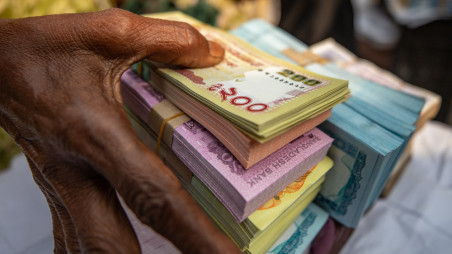MFIs can help informal sector labourers in time of COVID-19
If the MFIs do not start operation immediately, these families will be in a dire situation

I am writing this because I feel that at this moment microfinance is necessary for the informal sector which constitutes 85 percent of the total labour force. Most of the labourers of this sector live in rural, semi-urban and urban areas and microfinance is necessary for them for consumption, production and investment in this quasi lockdown situation amid COVID-19 pandemic.
These labourers are in a dire situation now, and they need support in COVID-19 prevention. Micro Finance Institutions (MFI) can do it in maintaining social distance. Micro-finance Regulatory Authority (MRA) has already asked them to work with leverage, i.e., if a borrower is unable to pay then it should not be considered as bad debt until June 2020. The country's biggest and self-sustained network Credit and Development Forum (CDF) is trying to do advocacy in this regard.
But there is some confusion on the works and accountabilities of MFIs. Around 3.30 crore families are the members of the sector, if I consider 5 members in a family then it is covering around 15 crore people, which is around 83 percent of the total population. There are 2.50 lakh staff working in microfinance institutions (MFI), it means support is going to around 11 lakh people. The GDP contribution of microfinance is 12.50 percent. Microfinance constitutes 82 percent of the rural economy.
If the MFIs do not start operation immediately, these families will be in a dire situation. A lot of third-generation MFIs will not be able to give salaries to their staff and most of these small and medium MFIs will face extinctions, as they have little on their capital, and the sector will go under some of the monopolies. These will be a danger for balance distribution, diversity and growth.
Bangladesh is at the top in respect to financial inclusion in South Asia and it is because of these MFIs. Bangladeshi MFIs' interest rate is controlled by the regulator (MRA). The MRA was established in 2006 by an act passed by the parliament. It is the third generation microfinance now. The first generation was led by Grameen, BRAC, and ASA. In the beginning, they faced little government control. They constitute around 55 percent share of the total sector now. While small and medium community-based NGOs like COAST cover around 45 percent share in the sector. They are third generation MFIs as they have savings, credit, insurance and non-micro finance development and humanitarian activities. The MFIs who do microfinance with saving credit and insurance only are considered the second generation. Third generation MFIs are mostly supported by the PKSF (Polli Karmya Sohyak Foundation).
Now the objectives of these third-generation MFIs are not only ensuring financial service to the poor, but it is also for promoting human dignity, health and education too. With the inspiration of the PKSF and Dr Qazi Kholikuzzaman and his capable team, these small and medium-size NGOs are spending their surplus with a subsidy from the PKSF on health, education, disaster management, refugee relief, agriculture, livestock, fishery, old people care, integrated rural development etc. with the local government. Most of these efforts are being concentrated to develop entrepreneurship with training and technology transfer as a boost to the country toward middle-income status in production and income along with decent life and human dignity.
Compared to other countries Bangladeshi MFIs are doing exceptionally well in accountability. The MRA do an audit of this MFIs quarterly basis, the PKSF does this audit to their partners in every two months. This is not an only financial audit, it is a management audit too. These NGOs have to report to the DCs and UNOs. They also have to report to the NGO Affairs Bureau (NGOAB) of Prime Minister's Office of Bangladesh. The NGOAB also do an annual audit for each of their approved projects with regular field label monitoring.
All MFIs have to regularly report to the income tax offices, leaders have to submit accounts of their personal assets. Most of the MFIs now have to take a loan from banks, as demand for a loan in the rural area has exponentially increased, where they fall in stringent accountability, even the leaders have to give a personal guarantee.
Maintaining a global standard of open organisation, several MFIs including COAST are accountable to you, and you can have direct access to them for complain, advice and complement.
The writer is an Executive Director of COAST



 Keep updated, follow The Business Standard's Google news channel
Keep updated, follow The Business Standard's Google news channel
















